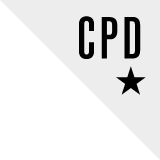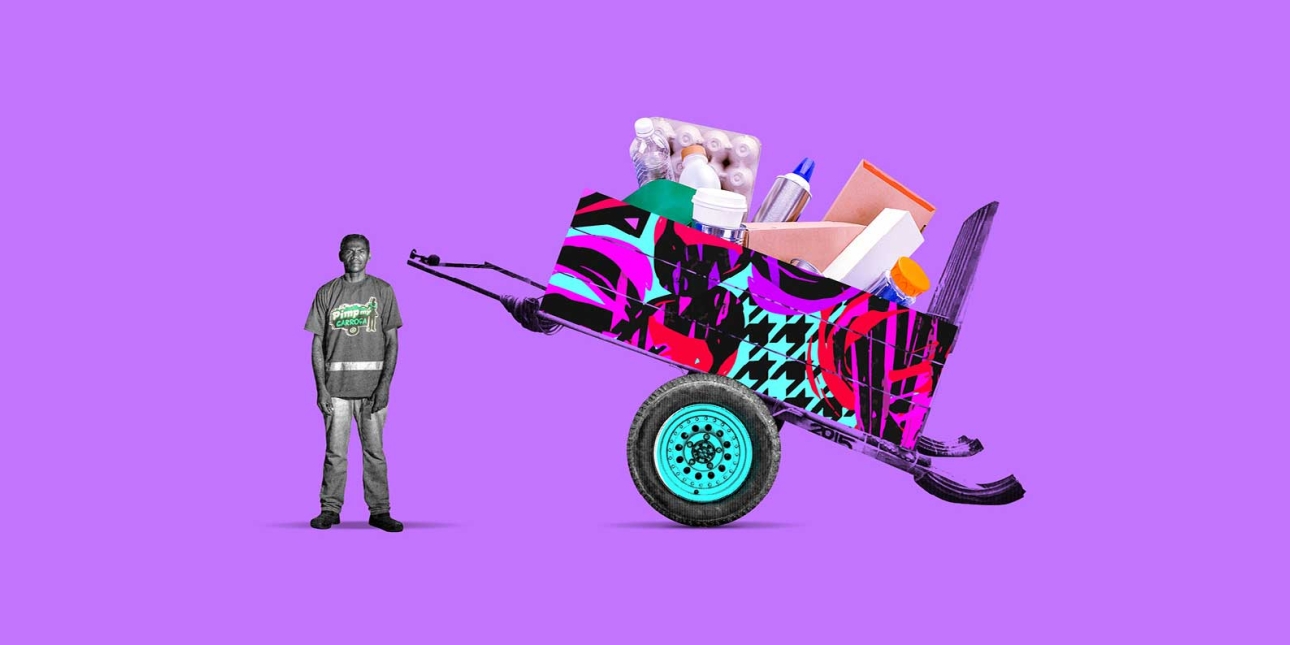Forget Pimp My Ride, Pimp My Carroça
São Paulo-based NGO Pimp My Carroça has one of those names that immediately arouses curiosity – whether on the part of Brazilians who only know the word “pimp” because of 50 Cent and Xzibit, or for English speakers who are thrown by “Carroça”. We at Sherlock Communications, as much as we would like to, can take zero credit for this name, which was already in existence for many years before we became involved.
Pimp My Carroça was founded in 2007 by Brazilian graffiti artist, Mundano. The original objective was to, quite literally, pimp the carroças, a type of hand-cart waste collectors use to accumulate recyclable trash. By reforming and spray-painting the carts, the often-underpaid, more-often homeless and almost-always ignored waste collectors would gain greater visibility.
It certainly worked on me. In August 2019, it seemed every time I stepped foot outside the Sherlock office in São Paulo, I would see a waste collector (or catador in Portuguese) and their brightly coloured carroça complete with Pimp logo. It didn’t take long for me to convince my team at Sherlock that we should reach out as part of our pro-bono work; it did take a long time, however, to persuade Pimp to accept our offer of complimentary PR assistance. They had never marketed themselves before, were relatively content and didn’t immediately see the benefits.
Ninety per cent of all Brazil’s recycling is done by catadores; without them, the country would barely recycle at all. Yet most Brazilians have very little idea of what catadores do and how their work directly affects their city, their country and their planet. Pimp’s goal then is to help provide catadores with improved working conditions, greater safety, better remuneration for their services and a higher standing in the community, which will boost their self-esteem and raise awareness regarding the importance of recycling.
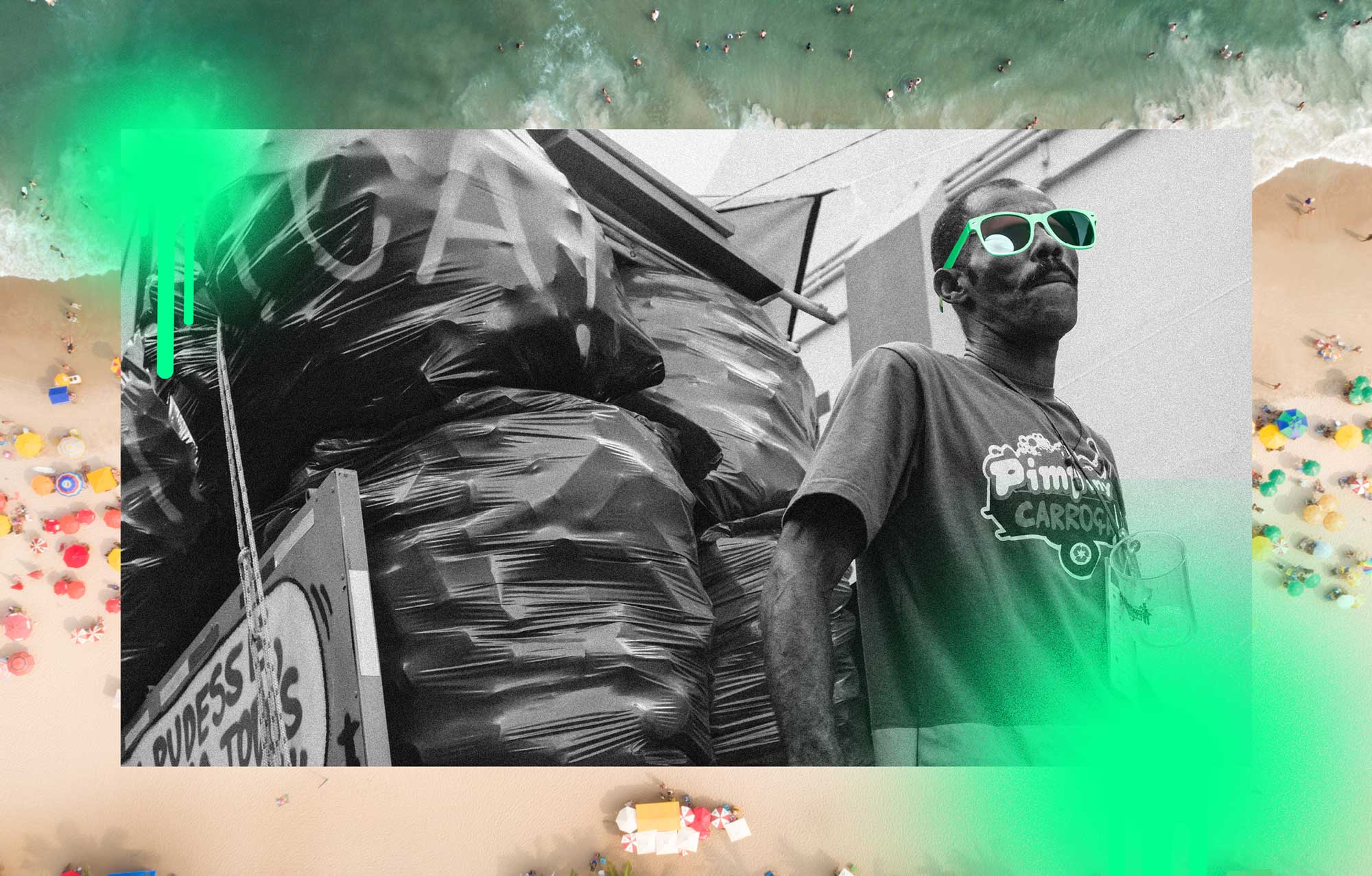
It took four months before they finally accepted our offer and asked us to help promote a public event they were organising (amazingly called Pimpão, which translates as “Big Pimp”). The idea was to bring as many catadores together as possible, help fix their carroças and provide health checks and hot meals. We connected with a dentistry college, who agreed to perform free dental checks at the event, sent out pre- and post-event press releases, mapped a whole host of targeted influencers and pitched the BBC, who attended and recorded a news piece that was broadcast in the UK.
Since then, unpaid media coverage and organic social media content has been near constant. When Pimp received money for communications from the local council, my colleague Bianca Boucault suggested it go towards syndicating an interview through Web Radio. This generated 200 coverages and, more importantly, put Pimp on the radio channels that the catadores themselves listen to while working. For a group of people who had felt invisible, this was a huge step. Their voices were being heard; suddenly they were “famous”.
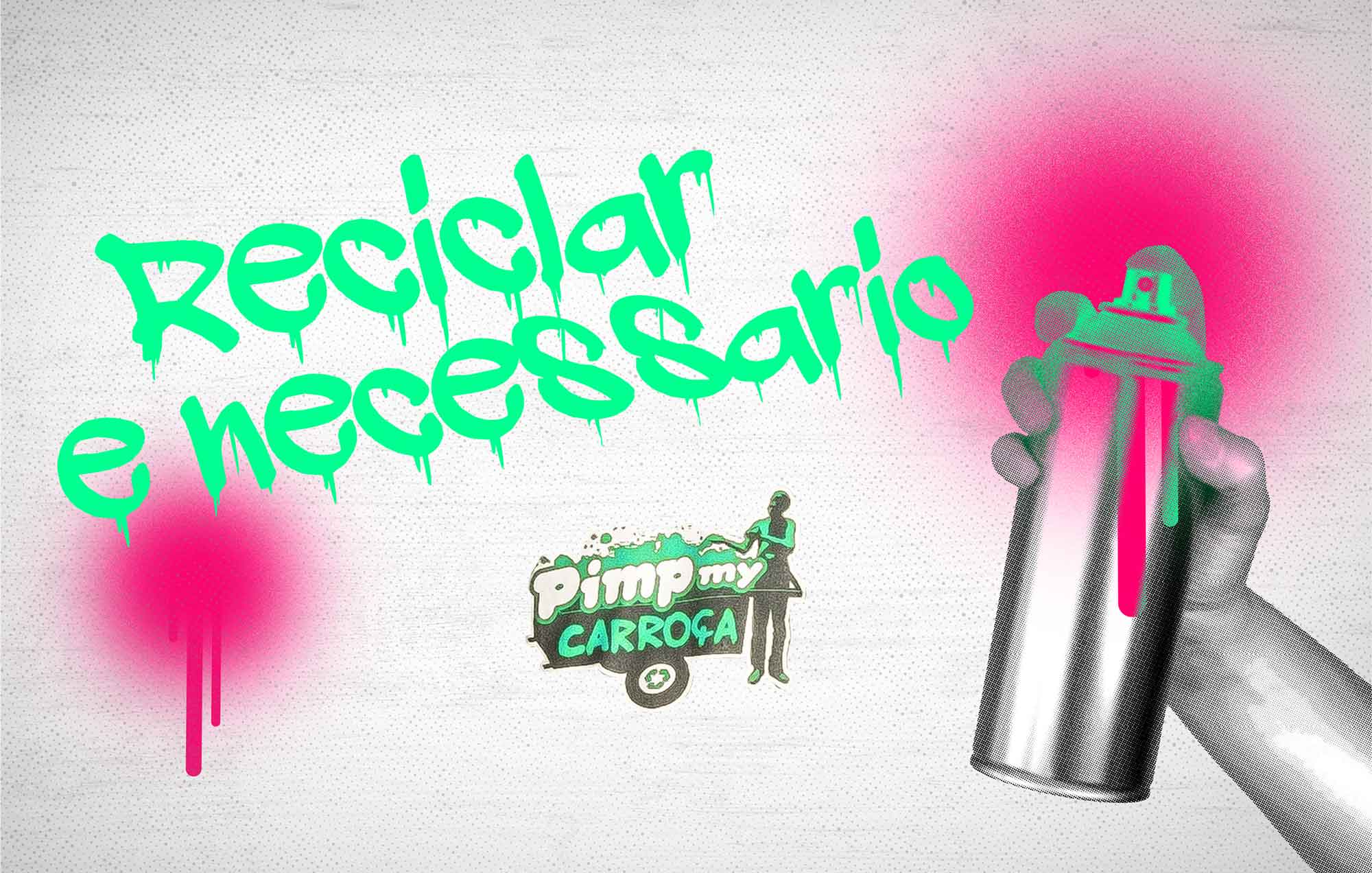
A few months later, following a highly successful Carnival in which Pimp’s increased profile helped them partner with both Nestlé and Coca-Cola, my colleague Maria Amélia da Costa suggested organising an open event for female waste collectors to mark International Women’s Day. With Covid-19 yet to arrive in Brazil, it was a great success, with dozens of women meeting in a São Paulo park to participate in female-led discussions as well as the now customary carroça-pimping. Claudia, one of the biggest women’s magazines in the country, covered the event in depth.
When the pandemic did finally stretch its tentacles into Brazil a few days later, almost all of our 2020 strategies for Pimp – including activations, events, tours, workshops and more – had to be postponed indefinitely. More than ever, our focus switched to the wellbeing of the catadores, helping promote a crowdfunding campaign, Renda Mínima Pros Catadores (Minimum Wage for Waste Collectors), which ultimately raised R$1.5 million (£208,000), three times the original target. After placing an exclusive on the BBC World website and later on TV Cultura, we saw a combined jump of more than R$30,000 in just 24 hours.
Recognising the need for social distancing and contact-free collections, we looked to further promote the NGO’s app, Cataki, both among catadores and among the public. Working as a kind of Uber for waste collection, the app cab boost the income of a catador by up to 69%, and we are proud to say we have managed to increase the number of users from 2,400 to more than 6,000 in a little over two years. Having already helped raise catadores’ profiles and self-confidence, we focused on raising their earnings and improving their lives too. We did this by overseeing the installation of solar panels to their carts, enabling even those without homes to easily charge their phone and access the app.
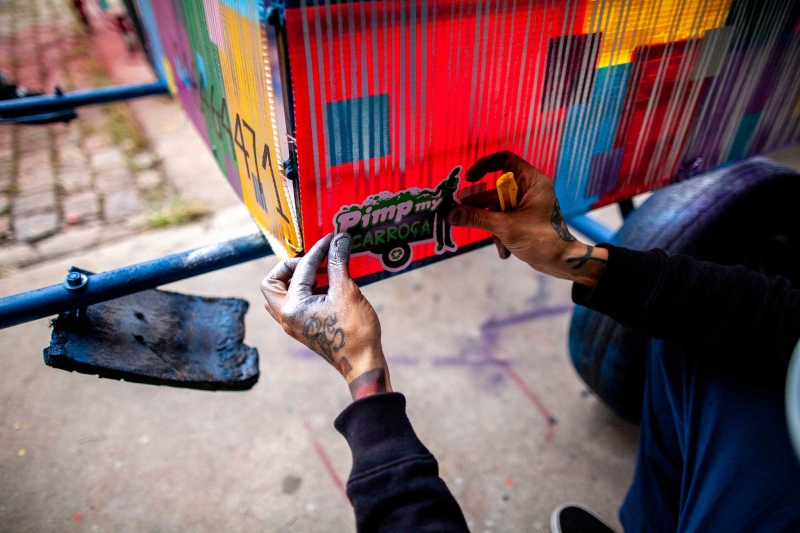
When Pimp told us in August 2020 of their plans to launch Carroças do Futuro (Carts of the Future) as part of their partnership with Nestlé, it marked the first time Sherlock Communications was able to be involved and aligned from the start of a campaign. Devising various strategies to maximise media outreach regarding Pimp’s new electric carts, we generated more than 50 coverages, mostly in Tier One media – and primarily on TV. This not only further increased the awareness of an NGO that had been largely unknown less than a year earlier, but also helped secure further partnerships for 2021.
Now, just 27 months and a pandemic since we first started to wonder what Pimp My Carroça was all about and decided to approach them, the NGO’s heightened presence, various award wins, expansion into Colombia and consistent media coverage has resulted in them now receiving US$10,000 per month from Google Grants to promote themselves through online searches. We support them on this, producing a campaign that has generated 629,000 impressions and almost 45,000 click-throughs to their site in the past year.
Pimp is an organisation that gives a louder voice to the under-appreciated. We like to think our PR work with them has followed that mantra: raising the status of a truly original NGO that is changing lives and much more. Pimp My Carroça – no longer unknown, no longer ignored, no longer mistakenly associated with 50 Cent and Xzibit.
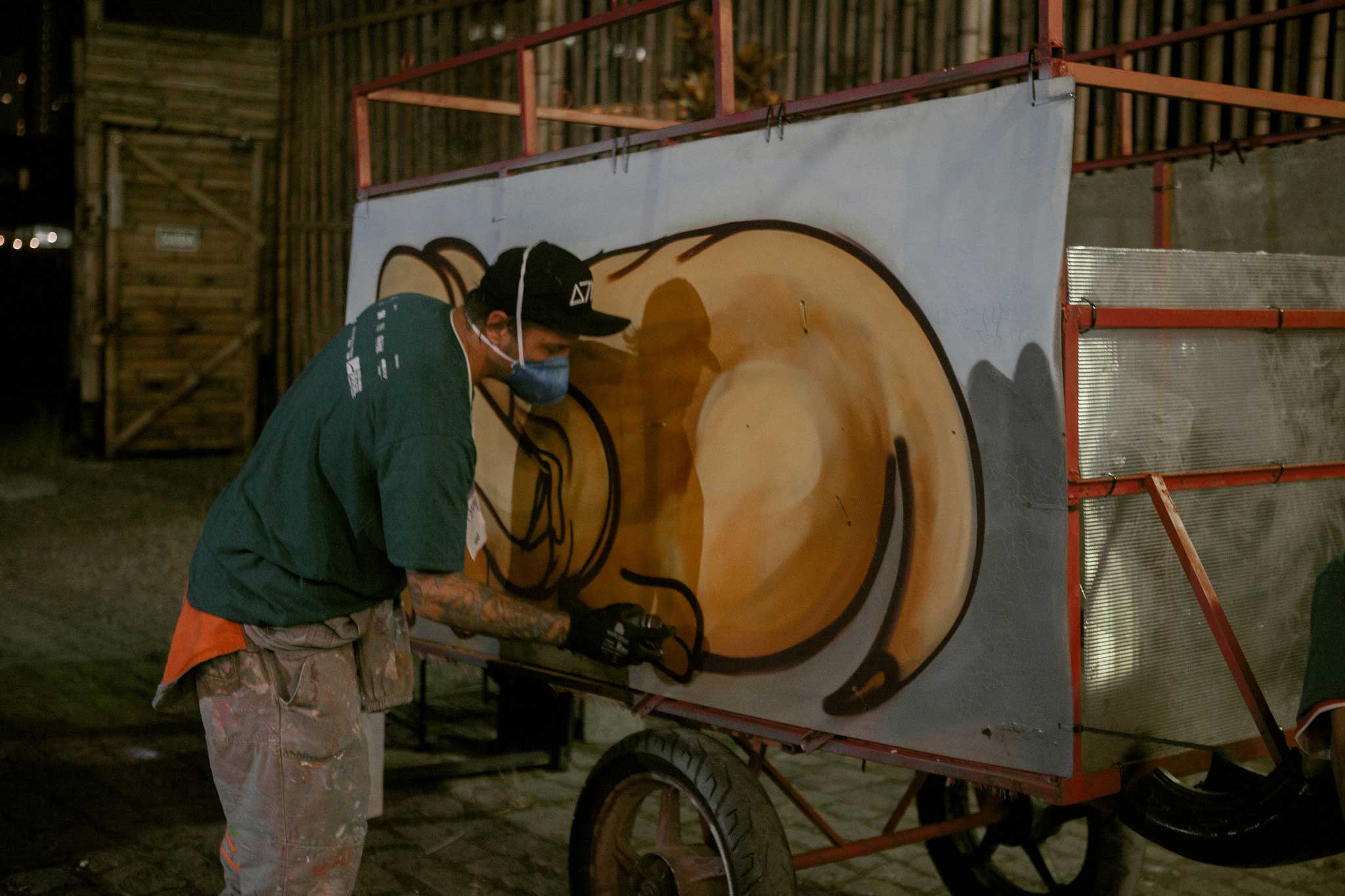
.jpg&w=728&h=90&maxW=&maxH=&zc=1)
